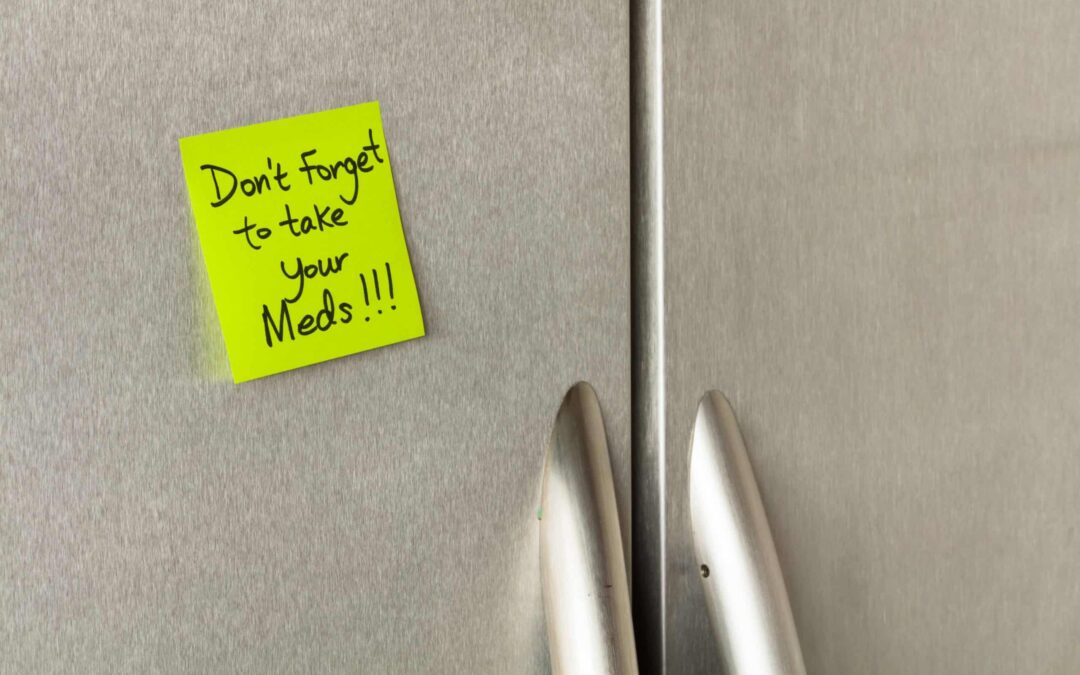Until I started fertility treatment, I had no experience with the world of specialty medications. I was vaguely aware that some medications had to be refrigerated, but I didn’t know anything about them, and I never bothered to wonder how people travel with these sorts of drugs. Here’s what I’ve learned since.
Not all fertility medications come with instructions to refrigerate. The ones that do, such as Ovidrel and Follistim, lose potency at room temperature.
“These medications are derived from living animal cells/ hormones to work within our body,” says Kay Szeto, a clinical pharmacist I consulted for this post. “So you can imagine that keeping them ‘fresh’ is important. Just think of them like milk!”
For Reference:
Room Temperature: 68°F to 77°F/ 20°C to 25°C
Refrigerated: 36°F to 46°F/ 2°C to 8°C
Make sure you’re keeping the medications within these ranges. Freezing can totally destroy medication. Extreme heat isn’t good for them either, which is one reason that the package usually says to store away from sunlight.
Kay says that some formulations can stay at room temperature for a period of time, but their lifespan may be greatly decreased. For example, a particular medication might last 120 days if refrigerated, but only 30 days at room temperature!
That may not be a big deal if you know you are going to use the medicine within those 30 days, but fertility treatment can be hard to predict. You may respond faster or slower than you expected. You may even need to cancel that cycle and start all over again in a month or two.
If that happens, you’ll be glad that medication is safely in the fridge — especially since these meds are not cheap! I explain more about cancelled cycles in the post Why Would a Cycle of Fertility Treatment Get Cancelled?
Just because you’re keeping these medications cold, doesn’t mean you should necessarily inject them straight out of the fridge. They would still work, but the experience might be uncomfortable.
“Injecting cold medications is not pleasant,” Kay says. “We tell patients that use insulin and other injectables to let the medication warm to room temp before injecting to reduce the discomfort.” Good advice!
What If You Forget to Put Your Fertility Injections in the Fridge?
You would not be the first person to frantically Google this question after discovering that they left their fertility meds on the kitchen counter overnight!
Whether you can still use it or not depends on the medication. As I said, some medications are fine if left out for a little while as long as you are going to use the medication fairly soon. You should always consult with your doctor or pharmacist for the appropriate answer for your situation.
Some medications, such as Follistim, are injected using a cartridge pen. The storage requirements can vary depending on whether you already punctured the cartridge or not.
Other medications are sold as a powder that has to be reconstituted (mixed with a liquid) before use. One common fertility drug that is reconstituted is Menopur.
If you’re taking one of these meds and you’ve already mixed it, it definitely needs to be kept in the fridge. Kay says reconstituted medications can start to break down in as little as an hour when not refrigerated — meaning that it has to be thrown away if you left it out overnight. Bummer!
Ordering Fertility Medications by Mail
Run-of-the-mill oral medications like Femara (letrozole), Clomid, Metformin, and estrogen or progesterone supplements are available at pretty much any pharmacy, but once you move on to injectables you’ll probably have to go through a specialty mail-order pharmacy — those shots won’t be in stock at your local CVS.
I talk more about these medications in the posts Are Letrozole and Femara the Same Thing? and When to Consider Moving on to Injectable Fertility Meds.
If the medication needs to stay refrigerated, it will be shipped with dry ice.
If you’re having your fertility injections shipped to your house, make sure the package won’t be sitting around on a porch in very hot or very cold weather until you get home. As I note above, they are meant to stay in a specific temperature range.
Sometimes I had my Ovidrel sent to my doctor’s office instead of my house. The office had a little fridge full of trigger shots and other fertility-related meds that various patients had ordered. That made it easy to do the injection right away if the follicle ultrasound indicated that the time was right.
Be warned, though: Some practices will charge you a fee if the nurse gives you the injection.
I didn’t go to an actual fertility clinic, though. I have been told that fertility clinics often won’t let you send medications to their office or have the nurse give the injections, because they are just too busy. Definitely ask before you have anything shipped to them!
For more about Ovidrel shots, including their potential effect on home pregnancy tests, check out my post Can Ovidrel Cause a False Positive on a Pregnancy Test.
Flying with Fertility Medications
(I originally wrote this post before the COVID-19 pandemic, which has halted many forms of medical treatment and travel. But hopefully this info will be useful when the world reopens!)
Your fertility doctor would probably prefer it if you stayed close to home during your treatment, especially if you are doing IVF. But life does march on, and you could end up taking a trip for work (or if you’re lucky, an awesome vacation!) while you’re in the middle of a medicated cycle.
If you are traveling with a medication that needs to be refrigerated, you can buy a little travel cooler that is marketed to diabetics for insulin. Kay suggests making sure there is some kind of barrier, like a towel, between the gel pack and the medication so the medication doesn’t freeze.
Don’t forget the supplies. Make sure you have enough needles, as well as alcohol wipes, hand sanitizer, a small sharps container, and whatever else you need.
Try to bring all the prescription refills you think you might need, so you are not relying on a random pharmacy at your destination to have these medications on hand.
If your trip involves a plane, you’ll obviously want to get through airport security as smoothly as possible. Keep all medicines in your carry-on rather than your checked bags, just in case your luggage goes missing. This also keeps the medication out of the cargo hold, where the temperature can vary a lot.
“To be honest, the TSA laws change all the time. I would call to make sure it’s okay to bring them as a carry-on,” Kay says. (You can also check this page on the TSA’s website before you leave.)
She pointed out that people travel with refrigerated or injectable medications all the time, including insulin, Epi-Pens, and drugs for treating cancer and autoimmune diseases.
Even though the TSA staff have seen these medications before, it’s a good idea to have your prescriptions well-documented to prevent unnecessary hassles. Kay recommends packing any medications you are bringing in their original containers, boxes, or bottles if you can. Make sure the pharmacy label is attached.
You can also bring a copy of the original paper prescription if you have it, or ask your doctor to write a letter providing the names of the medications and why they were prescribed. This is especially important for controlled medications and anything involving needles.
Inform the TSA that you are traveling with medications before you go through the security checkpoint, because they may want to screen them separately. Also, some medications shouldn’t go through the X-ray machine.
If this sounds like a huge hassle, find out if you can get your fertility medications shipped to a brick-and-mortar pharmacy instead of your house.
Walgreens is one pharmacy chain that offers this option. It’s a perfect solution for people who are going to be traveling, because they can have the medication sent to whatever Walgreens location is closest to them.
When You Need More Than Medication During Your Trip
Medications are not the only part of fertility treatment, though. There’s also blood work, ultrasounds, and maybe even a procedure or two. Check with your insurance company before you leave to find out if there are any in-network providers in the area where you’re going, in case you need to see a doctor while you are there.
You’ll also need your male partner or a “sample,” if you’re going to be away during the key part of your cycle. Depending on the timing, it may make more sense to wait and try again next month.
I had to skip a cycle once because my husband was going to be out of town at a conference during the all-important second week. I used it as an opportunity to go back on BCP to see if that would jump-start anything. (Spoiler: It didn’t. It was actually super annoying because my doctor put me on a low-estrogen pill and I never got my period at the end of the pack.)
I go into more detail about insurance issues in the posts How Much Does an IUI Cost Without Insurance? and Insurance Coverage for Fertility Treatment: 8 Things to Know.
Conclusion
When you’re trying to figure out how to store your medications, it’s always best to follow the directions given by your doctor and/ or pharmacist and the manufacturer of the specific medication you’re taking.
If you’re reading this post because you’re planning a trip in the middle of a medicated cycle, have a great time and good luck!




 I’m Jenn! Here I am with my beautiful twin boys. My pregnancy was possible thanks to fertility treatment for PCOS.
I’m Jenn! Here I am with my beautiful twin boys. My pregnancy was possible thanks to fertility treatment for PCOS.


